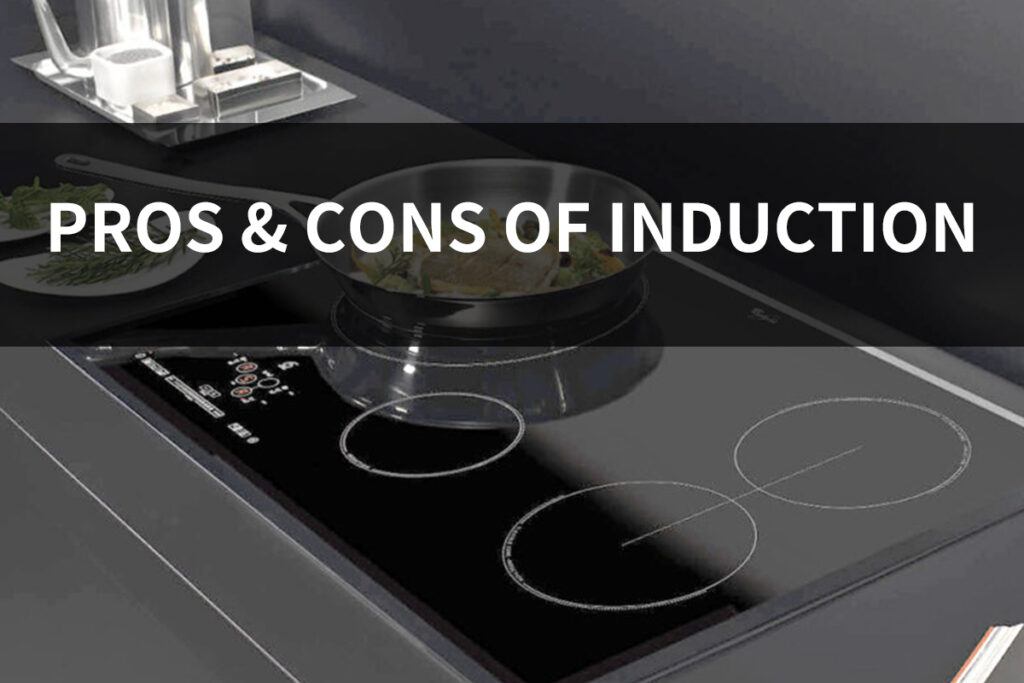The Pros and Cons of Induction Cooktops highlight a popular cooking technology that has been gaining traction in modern kitchens. These cooktops harness electromagnetic energy to heat pots and pans directly, providing a quick and efficient cooking experience. With their sleek design and advanced features, induction cooktops have sparked interest among culinary enthusiasts and home cooks alike.
However, as with any technology, there are both advantages and disadvantages to consider. From energy efficiency and safety to compatibility with certain cookware, understanding the full picture can help you make an informed decision about whether induction cooking is right for you.
Technology has been a crucial part of human evolution, shaping the way we interact with the world around us. From the invention of the wheel to the rise of artificial intelligence, each technological advancement has played a significant role in transforming our lives. This article takes you on a journey through time, exploring the key milestones in the evolution of technology.
The Dawn of Technology
The story of technology begins with early humans, who developed basic tools to aid in their survival. The invention of the wheel around 3500 BC marked a significant turning point. Not only did it revolutionize transportation, but it also paved the way for trade and commerce. This simple yet effective invention laid the foundation for future innovations.
The Agricultural Revolution: The Pros And Cons Of Induction Cooktops
Fast forward to around 10,000 BC, humans transitioned from nomadic lifestyles to settled farming communities, a shift known as the Agricultural Revolution. This change was facilitated by the development of farming tools and techniques, which increased food production and allowed populations to grow. Technology in this era was not just about tools but also about understanding irrigation, crop rotation, and animal husbandry.
The Age of Invention
The next major leap in technology came during the Age of Invention in the 18th and 19th centuries. The Industrial Revolution transformed economies and societies, primarily in Europe and North America. Innovations such as the steam engine, spinning jenny, and power loom mechanized production processes, leading to mass production and urbanization. This period laid the groundwork for modern economies and introduced new social dynamics, as people moved from rural areas to cities for work.
The Rise of Electricity
The late 19th century saw another groundbreaking shift with the advent of electricity. Thomas Edison’s invention of the light bulb in 1879 changed how people lived and worked. Suddenly, businesses could operate longer hours, and homes became safer and more functional. This era also witnessed the development of telecommunication technologies, including the telephone by Alexander Graham Bell. The ability to communicate over distances redefined social interactions and commerce.
The 20th Century: A Technological Explosion
The 20th century is often regarded as the most transformative period in technological history. The invention of the airplane by the Wright brothers in 1903 revolutionized travel and trade, connecting the world like never before. The introduction of computers in the mid-20th century marked the beginning of the Information Age. Early computers were enormous and primarily used by governments and large corporations, but that changed rapidly with the advent of personal computers in the late 1970s and 1980s.
The Internet Revolution
The creation of the Internet in the late 20th century brought about an unprecedented change in the way we access and share information. Initially developed for military purposes, the Internet soon became a global phenomenon, connecting individuals and businesses worldwide. Email, websites, and social media emerged, transforming communication and creating new opportunities for commerce and social interaction.
The Age of Mobile Technology
The rise of mobile technology in the 21st century has further accelerated the pace of innovation. Smartphones, with their advanced capabilities, have become ubiquitous, allowing people to access information, communicate, and conduct business on the go. Mobile applications have created entire industries and changed consumer behavior, making it easier than ever to shop, socialize, and engage with content.
The Impact of Artificial Intelligence
As we navigate through the 21st century, artificial intelligence (AI) is emerging as one of the most significant technological advancements. From chatbots to self-driving cars, AI is transforming industries and enhancing our daily lives. Machine learning algorithms analyze vast amounts of data, enabling smarter decision-making in fields such as healthcare, finance, and logistics. However, as AI continues to develop, ethical considerations and potential impacts on employment and privacy are becoming crucial topics of discussion.
Looking Ahead: The Future of Technology
As we look to the future, it’s clear that technology will continue to evolve at a rapid pace. Emerging fields such as quantum computing, biotechnology, and renewable energies promise to revolutionize various aspects of our lives. The integration of technology in education, healthcare, and environmental sustainability offers solutions to some of the most pressing global challenges. However, with these advancements come responsibilities and ethical dilemmas that society must navigate, ensuring that technology serves humanity’s best interests.
Conclusion
The evolution of technology is a testament to human creativity and ingenuity. Each milestone, from the wheel to artificial intelligence, reflects our quest for efficiency, convenience, and progress. As we embrace the future, it’s essential to remember the lessons of the past and approach new technologies with a balance of enthusiasm and caution. The journey of technology is far from over, and its potential to shape our world remains limitless.
Popular Questions
Are induction cooktops safe to use?
Yes, induction cooktops are generally considered safe since they only heat the cookware, reducing the risk of burns.
Can any cookware be used on induction cooktops?
No, only magnetic cookware, such as cast iron and stainless steel, is compatible with induction cooktops.
Do induction cooktops consume more electricity?

No, they are more energy-efficient than traditional gas or electric cooktops because they heat up faster and waste less energy.
How do induction cooktops compare in cooking speed?
Induction cooktops typically cook food faster than conventional methods due to their direct heat transfer to pots and pans.
Are induction cooktops easy to clean?
Yes, they are easy to clean as spills do not burn onto the surface and can be wiped away quickly.






